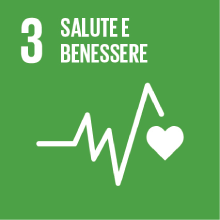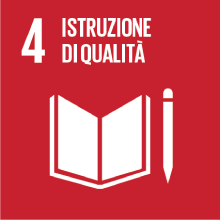PUBLIC AND COMMUNITY ARCHAEOLOGY
- Anno accademico
- 2023/2024 Programmi anni precedenti
- Titolo corso in inglese
- PUBLIC AND COMMUNITY ARCHAEOLOGY
- Codice insegnamento
- C38-9 (AF:490374 AR:272977)
- Lingua di insegnamento
- Inglese
- Modalità
- In presenza e online
- Crediti formativi universitari
- 6 su 12 di PUBLIC AND COMMUNITY ARCHAEOLOGY AND DIGITAL CULTURAL HERITAGE
- Livello laurea
- Laurea
- Settore scientifico disciplinare
- L-ANT/10
- Periodo
- II Semestre
- Anno corso
- 1
- Sede
- VENEZIA
Inquadramento dell'insegnamento nel percorso del corso di studio
Module 2, Public and Community Archaeology: The classes will review the legislation that shapes archaeological exercise, media representations of archaeology, and the transformative partnerships between archaeologists and the public. The classes will focus on the bottom-up critical concepts of participatory archaeology and community archaeology as opposed to the top-down archaeological perspective in public and heritage tourism. The course will study the concepts of sustainability and ethics applied to archaeology, underlying the importance of civic engagement.
Risultati di apprendimento attesi
- Ability to recognize the roles of public opinion and the tourism industry in the protection and interpretation of Cultural Heritage;
- Ability to recognize suitable methodologies of Digital Archaeology for specific cases and planning the research;
- Ability to manage GIS environment and exploit multiple 2D and 3D data.
3) Judgement skills:
Ability to mediate the recent debates about ownership, responsibility, and definitions of Cultural Heritage.
Ability to critically investigate and evaluate digital archaeological sources;
Ability to develop critical thinking skills concerning Digital Archaeology.
Prerequisiti
Students who want to attend this course are not required to possess any other prerequisite for admission
Contenuti
1. Cultural Heritage Definition. What is Cultural Heritage? Who protects it? From what? For whom? Who does own the Heritage? Heritage / Modernity / Materiality
2. Histories, Memories, and Heritage. The Authorized Heritage Discourse. Subaltern and dissenting Heritages. Heritage as a cultural process
3. Uses and Abuses of the Past: Politicians, Propaganda, and Nonsense. The political character of archaeological Heritage. Past and present propaganda.
4. The Rules and the Manuals: Cultural Heritage Law, Principles, and Guides Today
5. 1945-2020: Heritage and European Identities. National cultures, European approaches.
6. Archaeology of Localities/Nationalisms/Identities.
7. What makes archaeology Public? Defining research, value, and impact.
8. Community-Based Participatory Research. Inclusive archaeology.
9. Tourism and Presenting Cultural Heritage to the Public. Sustainable Heritage and Tourism.
10. Archaeological Heritage and Tourism.
11. Archaeology as activism. Contemporary archaeology and its impact. Changing world, Migrations, climate change and archaeology. Archaeology "on the fields": migrations/wars/famines.
12. Tag it. Like it. Post it. Archaeology, Heritage and social media. Social media narratives. Social media communications and communicators.
Testi di riferimento
- An array of specific paper and book chapters and internet videos that will be available on Moodle
Referral text will be:
C. Westmont, Critical Public Archaeology: Confronting Social Challenges in the 21st Century, 2022
G. Moshenska, Key concepts in Public Archaeology, 2017
L. Smith, E. Waterton, Heritage, Communities and Archaeology, 2013
R. Harrison, "Heritage. Critical Approach.", 2013
T. Ireland, T. Schofield (eds.), "The Ethics of Cultural Heritage", 2015
L. Meskell, "A Future in Ruins. Unesco, World Heritage, and the Dream of Peace", 2018
L. Meskell, P. Peels, "Embedding Ethics", 2005
R. S. Peckham (ed.), "Rethinking Heritage. Cultures and Politics in Europe", 2003
H. Rued-Cunliffe, A. Copeland (eds.), "Participatory Heritage", 2017
L. Smith, "Uses of Heritage", 2006
A. Stille, "The Future of the Past", 2002
G. Volpe, "Patrimonio al Futuro. Un Manifesto per i Beni Culturali", 2015
S. West (ed), "Understanding Heritage in Practice", 2010
M. Forte, S. Campana S., Digital Methods and Remote Sensing in Archaeology. Archaeology in the Age of Sensing, 2016
E. Watrall, L. Goldstein, Digital Heritage and Archaeology in Practice: Presentation, Teaching, and Engagement, 2022
F. R Cameroon, The Future of Digital Data, Heritage and Curation: in a More-than-Human World, 2021
- Class notes and pdf of the lessons will be available on Moodle.
- An array of specific paper and book chapters and internet videos that will be available on Moodle
Referral text will be:
C. Westmont, Critical Public Archaeology: Confronting Social Challenges in the 21st Century, 2022
G. Moshenska, Key concepts in Public Archaeology, 2017
L. Smith, E. Waterton, Heritage, Communities and Archaeology, 2013
R. Harrison, "Heritage. Critical Approach.", 2013
T. Ireland, T. Schofield (eds.), "The Ethics of Cultural Heritage", 2015
L. Meskell, "A Future in Ruins. Unesco, World Heritage, and the Dream of Peace", 2018
L. Meskell, P. Peels, "Embedding Ethics", 2005
R. S. Peckham (ed.), "Rethinking Heritage. Cultures and Politics in Europe", 2003
H. Rued-Cunliffe, A. Copeland (eds.), "Participatory Heritage", 2017
L. Smith, "Uses of Heritage", 2006
A. Stille, "The Future of the Past", 2002
G. Volpe, "Patrimonio al Futuro. Un Manifesto per i Beni Culturali", 2015
S. West (ed), "Understanding Heritage in Practice", 2010
M. Forte, S. Campana S., Digital Methods and Remote Sensing in Archaeology. Archaeology in the Age of Sensing, 2016
E. Watrall, L. Goldstein, Digital Heritage and Archaeology in Practice: Presentation, Teaching, and Engagement, 2022
F. R Cameroon, The Future of Digital Data, Heritage and Curation: in a More-than-Human World, 2021
Modalità di verifica dell'apprendimento
Criteria:
- comprehensiveness and clarity in the presentation of the acquired information;
- aptitude in critical and personal assessment;
- capacity to make the attained knowledge relevant to the personal experience and original contents/cases.
Assessment of knowledge:
Assessment will grade the class participation (25%) and the final oral examination (75%), in which students will be evaluated as to the knowledge and the competencies they acquired during the course.
Modalità di esame
Metodi didattici
Obiettivi Agenda 2030 per lo sviluppo sostenibile
Questo insegnamento tratta argomenti connessi alla macroarea "Capitale umano, salute, educazione" e concorre alla realizzazione dei relativi obiettivi ONU dell'Agenda 2030 per lo Sviluppo Sostenibile



